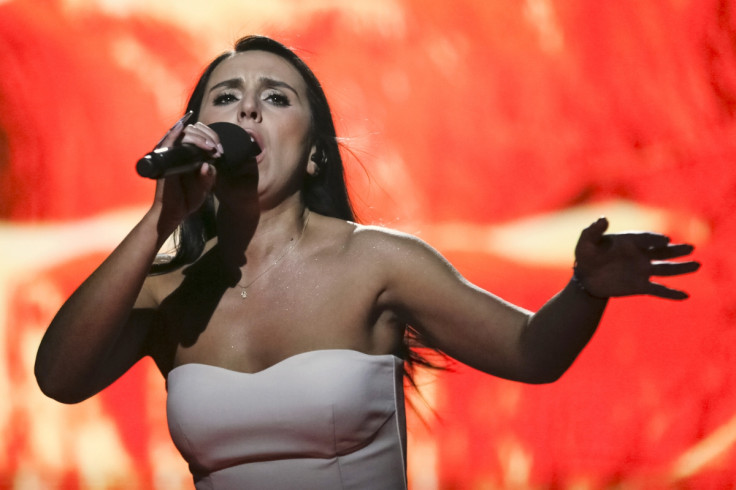Ukraine attempting to 'humiliate' Russia with Eurovision entry, claims Kremlin official

Ukraine's 2016 Eurovision entry has been described as an attempt to "humiliate" Russia by a Kremlin official. The song 1944 by Crimean Tatar singer Susana Jamaladinova, known as Jamala, is about the persecution of Tatars by Soviet dictator Stalin.
Russia and Ukraine have been in conflict following the 2014 annexation of the Crimean peninsula by Russia, with Tatars allegedly singled out for persecution by Russian officials in the Black Sea peninsula.
On Sunday (21 February) the 32-year-old jazz singer was chosen by Ukrainians to represent the country in the May Eurovision final in Stockholm, which will be held only days before the 72nd anniversary of the deportation of 240,000 Tatars by Soviet forces. Jamala's great-grandmother was amongst those deported.
"When strangers are coming, they come to your house, they kill you all/ And say, we're not guilty, not guilty," Jamala sings in the first verse, which was written in English.
Song accused of trying to 'humiliate Russia'
Russian officals have objected to the song being submitted, claiming it breaks competition rules on 'politicised content'. First deputy chairman of the Duma Committee on Information Policy Vadim Dengin called the song "A strange choice. I'm sure it is there to once again to humiliate Russia. I hope that those in charge of Eurovision do not allow such things on the grounds of their competition," in an interview with RIA Novosti.
A Eurovision spokesman told AFP all songs would be assessed by the March 14 entry deadline. "All entries for the upcoming Eurovision Song Contest, including the Ukrainian song, will be assessed under the rules by the EBU (European Broadcast Union)," which prohibits "political messages", said a spokesman.
In recent years, the competition has witnessed several controversies between former Soviet states, with a Georgian entry entitled "We don't wanna Put In" barred after the 2008 Russia/Georgia conflict on the basis it was a play on words with Russian President Vladimir Putin's name.
After Austrian drag artist Conchita Wurst won the competitoon in 2014, Putin condemend her for 'putting herself on show'.
© Copyright IBTimes 2025. All rights reserved.






















